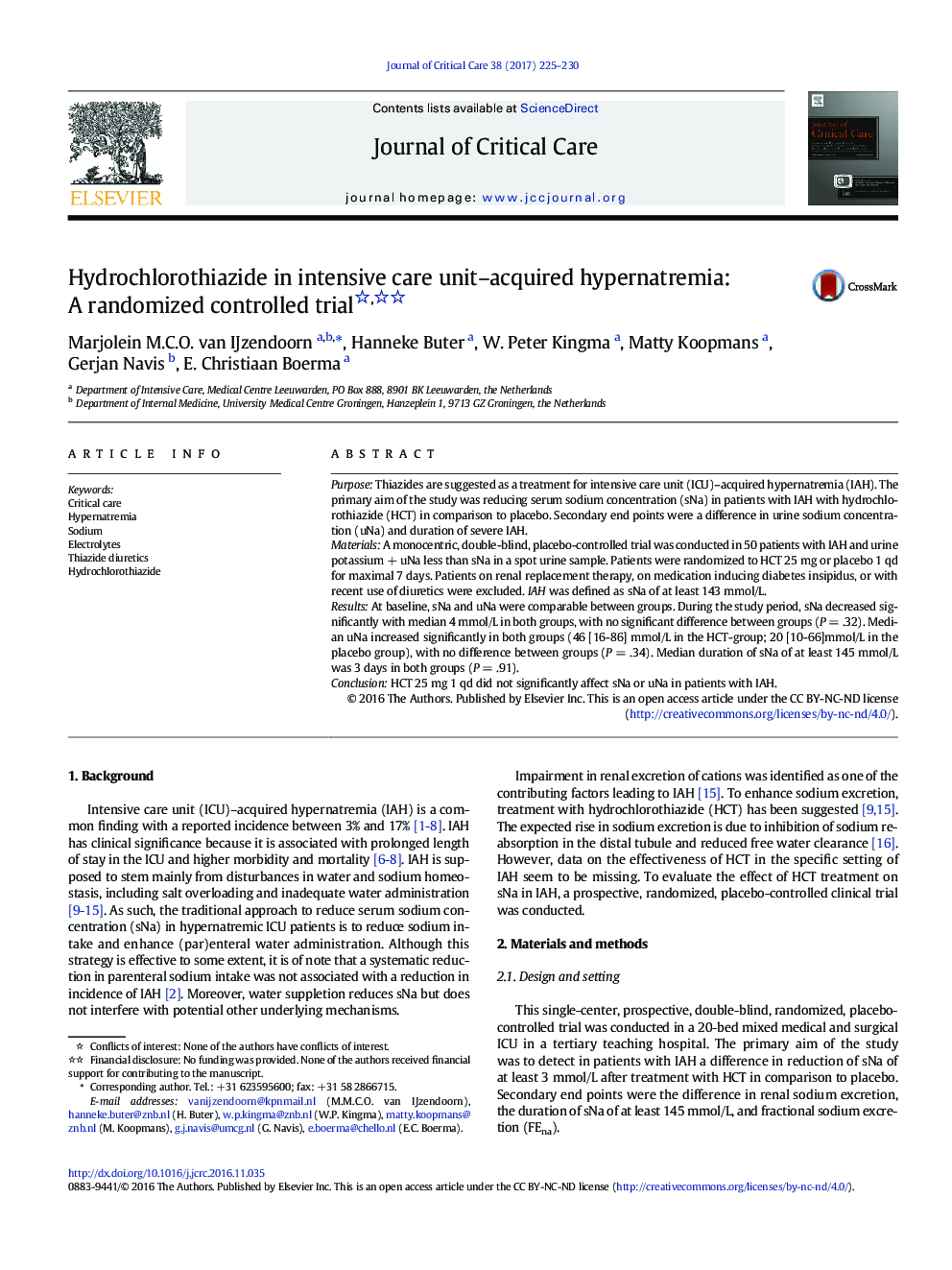| Article ID | Journal | Published Year | Pages | File Type |
|---|---|---|---|---|
| 5583467 | Journal of Critical Care | 2017 | 6 Pages |
â¢Many ICU patients with hypernatremia show impaired renal sodium excretion.â¢This is in spite of positive fluid balances.â¢Hydrochlorothiazide is not beneficial in treating ICU-acquired hypernatremia.
PurposeThiazides are suggested as a treatment for intensive care unit (ICU)-acquired hypernatremia (IAH). The primary aim of the study was reducing serum sodium concentration (sNa) in patients with IAH with hydrochlorothiazide (HCT) in comparison to placebo. Secondary end points were a difference in urine sodium concentration (uNa) and duration of severe IAH.MaterialsA monocentric, double-blind, placebo-controlled trial was conducted in 50 patients with IAH and urine potassium + uNa less than sNa in a spot urine sample. Patients were randomized to HCT 25 mg or placebo 1 qd for maximal 7 days. Patients on renal replacement therapy, on medication inducing diabetes insipidus, or with recent use of diuretics were excluded. IAH was defined as sNa of at least 143 mmol/L.ResultsAt baseline, sNa and uNa were comparable between groups. During the study period, sNa decreased significantly with median 4 mmol/L in both groups, with no significant difference between groups (PÂ =Â .32). Median uNa increased significantly in both groups (46 [16-86] mmol/L in the HCT-group; 20 [10-66]mmol/L in the placebo group), with no difference between groups (PÂ =Â .34). Median duration of sNa of at least 145 mmol/L was 3 days in both groups (PÂ =Â .91).ConclusionHCT 25 mg 1 qd did not significantly affect sNa or uNa in patients with IAH.
